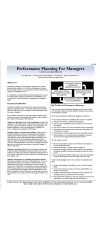Link Between Likeability And Leadership Effectiveness?
It’s not surprising we tend to couple popularity with leadership effectiveness, since most of then tend to attribute various positive qualities to those we like. It’s called the halo effect. However, while there may be a link between popularity and leadership, it’s not necessarily between effectiveness and the degree to which a leader is liked.
For example, a political figure running in an election who is well liked is more likely to become the country’s leader, but that has nothing to do with whether the elected official will be worth anything as a leader. It also can be the case that a leader who is ineffective, may end up disliked.
If you consider for a moment, it is often the case that effective leaders need to make decisions that anger people, and that those decisions may be needed by an organization. These “hard decisions” can result in a leader being unpopular on a personal level, but effective in terms of the organization.
As a leader, it is unwise to strive to be “popular”, particularly if in doing so, the leader sacrfices important values, principles and beliefs, and avoids making unpopular decisions when they are necessary.
That isn’t to say that leaders should go to far in the opposite direction, and act in obnoxious, offensive or egocentric ways that might, as a by-product, make them unpopular.






